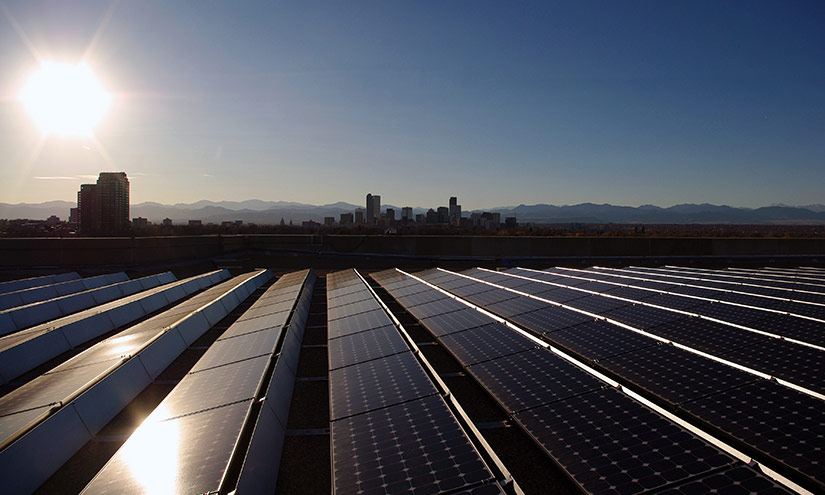SETO Awards NREL To Pursue National Solutions in Solar Integration

The National Renewable Energy Laboratory (NREL) has been awarded a large share of funds from the Department of Energy’s Solar Energy Technologies Office (SETO) 2020 funding program, receiving more than $9 million to study solar integration and reliability. Within the SETO-2020 program, and alongside a network of collaborators, NREL will lead three projects and support three others.
“Solar power has grown substantially on the electrical grid, and we expect that growth to continue. Now we are focused on optimally integrating that solar: for resilience, reliability, and efficiency,” said Ben Kroposki, a co-principal investigator on one of NREL’s awarded projects. “The SETO-2020 funding program will allow NREL and partners to continue developing cutting-edge controls and strategies to support hybrid and high-solar power systems everywhere.”
Each of the NREL projects will support the SETO-2020 program mission to achieve solar cost targets for 2030, while enabling utilities to manage a grid with more solar energy. NREL will use multimegawatt infrastructure and a cyber emulation platform to demonstrate solutions at a scale similar to real grid operations, from residential systems up to bulk system integration.
Of the three projects that NREL leads, two will target broad challenges in systems integration, and another will apply artificial intelligence to solar optimization. NREL is also sub-recipient on projects in systems integration and in photovoltaic (PV) reliability. Overall, the awards emphasize NREL leadership in producing advanced solutions for solar integration.
One of the NREL-led projects will complement NREL’s work on autonomous energy grids by introducing controls for self-optimizing, resilient microgrids. The project is named Reorg: Resilience and Stability Oriented Cellular Grid Formation and Optimization for Communities with Solar PVs and Mobile Energy Storages. Reorg will transform traditionally centralized grid operations into responsive and scalable community microgrids, rigorously optimized for resilience. This project will be demonstrated on a Colorado electrical system with 100% solar PV generation.
In the same line of thought, NREL will support the University of North Carolina-Charlotte in designing community microgrids with the ability to dynamically reconfigure and serve critical loads in the aftermath of severe events.
Control and Coordination of Hybrid PV Plants
Another NREL-led project spotlights NREL’s work in creating grid stability with inverter-based resources. The project will create a control framework that values and deploys stability services from hybrid PV plants—It is named SAPPHIRE: Stability-Augmented Optimal Control of Hybrid PV Plants with Very High Penetration of Inverter-Based Resources.
NREL is also sub-recipient on a Florida State University-led project to manage control between and within hybrid plants. The project will develop a universal approach to coordinating inverter-based resources with compatibility over a wide range of inverter operations and at various time scales.
Artificial Intelligence and Machine Learning
A third NREL-led project will use advanced computational methods to forecast day-ahead electrical load in areas that have large amounts of behind-the-meter solar. This project relates to another NREL-SETO effort named GO-Solar and will help extend utility awareness and access to advanced PV controls by providing accurate demand-side forecasts. The new NREL-led project is titled Deep-Learning-Powered Probabilistic Net-Load Forecasting with Enhanced Behind-the-Meter PV Visibility and will use data from Hawaiian Electric Company to demonstrate NREL’s method.
PV Reliability
On the hardware side, NREL will support Clemson University in creating a method that assesses reliability of power converters for solar PV. The project will develop TRACE-PV—the Tool for Reliability Assessment of Critical Electronics in PV—which will enable PV inverter developers to understand reliability bottlenecks, and PV operators to fairly quantify PV inverter reliability.
Last Updated May 28, 2025
